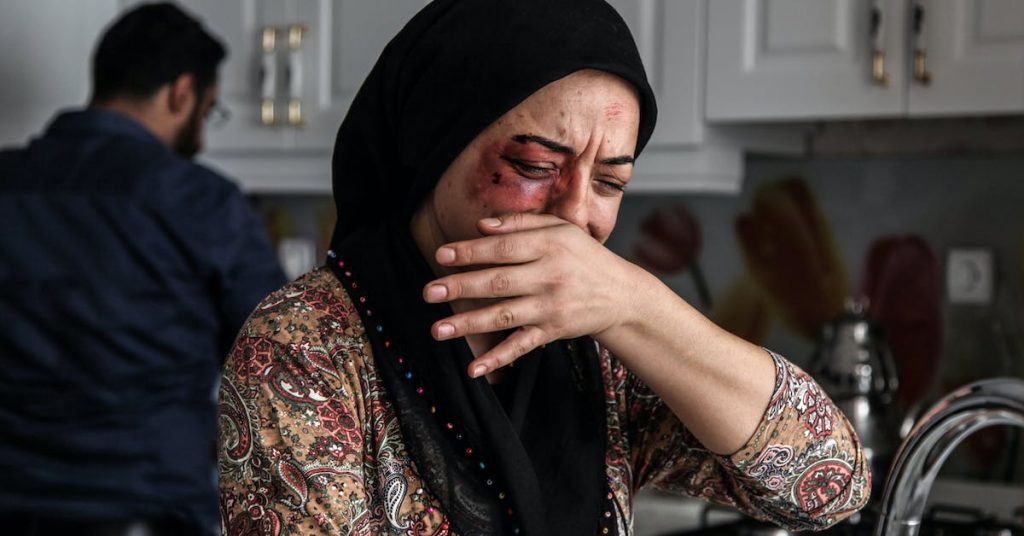If you’re experiencing domestic violence in Australia, there are several key contacts for immediate help and support. In urgent situations, call 000 to reach emergency services for immediate police assistance.
For confidential support and counseling, contact the National Domestic Violence Hotline or call 1800 RESPECT (1800 737 732), the National Sexual Assault, Domestic and Family Violence Counselling Service, available 24/7.
Each state and territory in Australia also offers specific domestic violence support services, providing resources such as counseling, legal advice, and safe accommodation.
Remember, reaching out for help is a critical step toward ensuring your safety and well-being.
What Happens If You Call The Police For Domestic Violence
When you call the police for domestic violence in Australia, the response involves several steps, prioritizing the safety of those involved:
Prioritizing Safety and Immediate Response
The primary concern of the police is the safety of the individuals involved. The NSW police, for example, prioritize the protection of individuals in a domestic violence situation. Once you call, they will respond promptly. In cases of immediate danger or ongoing assault, the police will act quickly to secure the safety of the victim and any other vulnerable individuals, such as children.
Investigation and Assessment
On arrival, police officers will assess the situation, talk to all parties involved, and gather evidence. This may include taking statements, photographing injuries, and noting property damage. The police will determine if a crime has been committed and whether an arrest is necessary.
Protection and Safety Orders
The police may issue a provisional Apprehended Domestic Violence Order (ADVO), which provides immediate protection to the victim. This order typically includes conditions to protect the victim, such as prohibiting the perpetrator from approaching or contacting the victim or entering their home or workplace.
Arrest and Charges
If there is evidence of a criminal offence, the police may arrest the perpetrator. Charges can be laid for various crimes, including assault, threats, and property damage. The police may remove the perpetrator from the property to prevent further harm.
Follow-up and Court Proceedings
If an ADVO is issued or charges are laid, subsequent court proceedings will occur. The police will keep the victim informed about the progress of the case and any court dates.
It’s important to remember that the primary goal of the police in these situations is to ensure the safety of the victim and any children involved and to take appropriate legal action against the perpetrator. If you are in NSW and experiencing domestic violence or know someone who is, don’t hesitate to call the police for help.
How To Call Police For Domestic Violence
Calling the police for domestic violence in Australia involves a few specific steps to ensure a swift and effective response. Here’s a guide on how to do so:
- Dial the Emergency Number:
- In Australia, the emergency number for the police is 000. Use this number to report immediate threats or ongoing incidents of domestic violence.
- Provide Clear Information:
- Once connected, try to stay as calm as possible.
- Clearly state that you are reporting a domestic violence incident.
- Give your exact location, including the address and important details like apartment number or nearby landmarks.
- Describe the Situation:
- Explain the nature of the violence and the urgency of the situation.
- If any injuries or medical assistance is required, mention this immediately.
- Inform them if children are present or if there are any immediate dangers like weapons.
- Follow the Operator’s Instructions:
- The emergency operator may provide specific instructions for your safety. Follow these carefully.
- Stay on the line if it’s safe, as the operator might keep the line open until help arrives.
- If You Cannot Speak Safely:
- If you cannot talk or it’s unsafe to speak, listen to the operator’s instructions. They are trained to handle such situations and may ask specific questions that can be answered with “yes” or “no.”
- Sometimes, making an audible signal, like tapping the phone, can indicate that you need help.
- After the Call:
- If possible, move to a safe place while waiting for the police to arrive.
- Avoid any confrontation with the abuser.
- Special Considerations:
- For those who are speech or hearing impaired, the National Relay Service is available in Australia. You can dial 133 677 for assistance.
- Some smartphones and devices have emergency SOS features that can contact emergency services without speaking.
Remember, your safety and the safety of others involved are the most important considerations. If you doubt or feel threatened, don’t hesitate to call 000 for help.
Also read: 10-Day Family Violence Leave
When To Call Police Domestic Violence
Knowing when to call the police for domestic violence in Australia is crucial for ensuring safety and getting the necessary help. Here are some guidelines to help determine when it’s appropriate to call the police:
Immediate Danger or Threat
Call the police if you or someone else is in immediate danger. This includes situations where physical violence is occurring, or there’s a threat of violence. If the perpetrator has a weapon or there is a threat to life, it’s vital to call the police immediately.
If you or someone else has been physically assaulted or injured as a result of domestic violence, contact the police. Even if the injuries seem minor, it’s important to report the incident, as it can help in building a case against the abuser.
Threats of Harm
If threats of physical harm, death, or other types of violence are being made, it’s a reason to call the police. Threats are a form of abuse and are taken seriously.
If you’re experiencing stalking, harassment, or intimidation as part of domestic violence, this is also grounds for involving the police.
Violation of a Protection Order
If there is an Apprehesive Domestic Violence Order (ADVO) or any protection order in place and the abuser is violating its terms, contact the police. This is a legal matter, and such violations are taken seriously.
Children are in Danger or Witness Violence
If children are present and in danger, or if they are witnessing domestic violence, it’s important to ensure their safety by contacting the police.
Destructive, Threatening Behavior, and Coercive Control
This includes damaging property, threatening pets, or any behaviour that creates a threatening environment.
Coercive control is a form of domestic violence that involves patterns of domination, intimidation, and control. It can be psychological and is recognized as a serious issue.
If You Feel Unsafe
Trust your instincts. If you feel unsafe or believe that violence is likely to occur, it’s better to call the police.
Remember, in Australia, the emergency number for the police is 000. It’s better to err on caution and call if you feel threatened or are in danger. Your safety and the safety of others, especially children, is paramount.
Who to Call for Domestic Violence Support
If you’re facing domestic violence, it’s crucial to reach out for help immediately. Contact emergency services at 000 for urgent assistance. For legal guidance and support tailored to your unique situation, consider our AVO lawyers.
Our experienced team provides compassionate, confidential legal advice, ensuring your rights and safety are prioritized. Connect with us to explore your legal options and take the first step toward a safer future. Don’t wait—contact Justice Family Lawyers today for expert legal support in domestic violence cases.
Principal of Justice Family Lawyers, Hayder specialises in complex parenting and property family law matters. He is based in Sydney and holds a Bachelor of Law and Bachelor of Communications from UTS.






